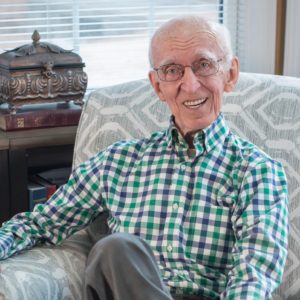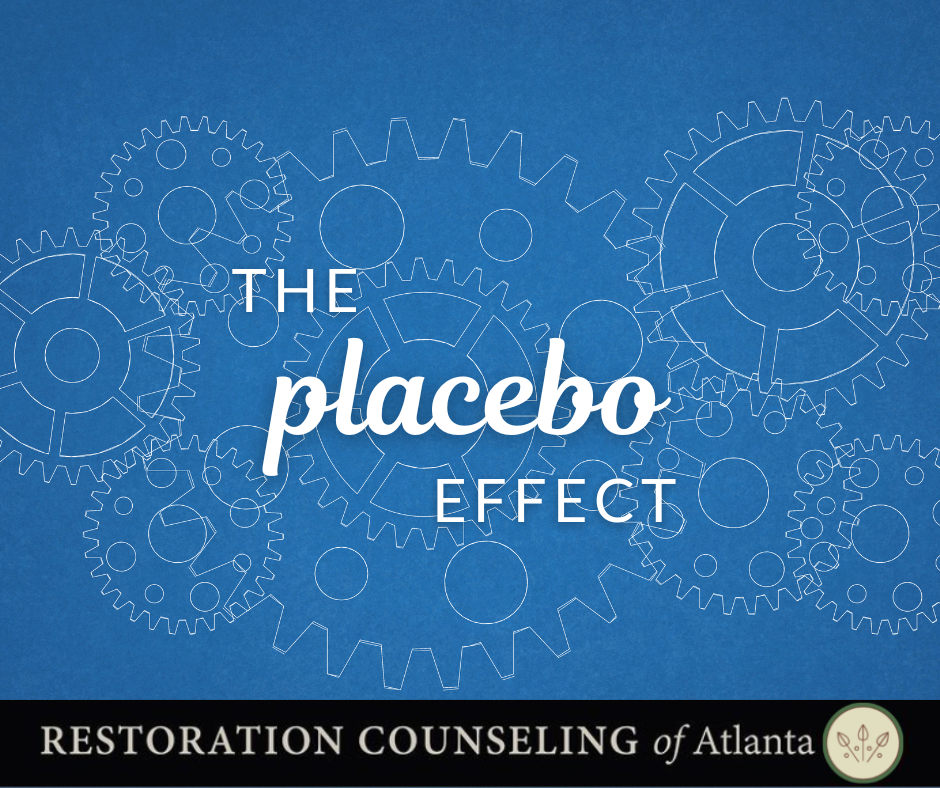Which is easier to believe? Someone’s cancer went into remission after he was given a sugar pill, or a man blind from birth received sight when treated with a preparation of mud made with saliva? These two occurrences are seldom, if ever mentioned in the same sentence, especially when the focus is on the healer. In the first example, the healer may be an ordinary human being with an MD after his name. With all due respect for the effort that went into the medical degree, in the second example, the healer was Jesus, by no means your ordinary medical school graduate. Based on this distinction one may say the two events have nothing in common. Not many of us are about to stick our necks out by claiming that anything Jesus can do we can do also. And so we don’t go there.
However, in John’s Gospel, Jesus says to his disciples “Whoever believes in me will do the works I have been doing and they will do even greater things than these.” (Jn. 14:12 NIV) The phrase: Whoever believes tells us that the capacity to perform miracles as Christ did extends to all of us of with one stipulation—faith.
Perhaps there really isn’t so much difference between the events mentioned above, and perhaps the similarities can be seen if we turn our attention to the process of healing. Whatever the details may be, whatever the mechanics of the healing, the common denominator is a belief in the outcome. Another word for that is faith.
We may presume at least two components of faith. One is a desire for some outcome and the other is expectation. The importance of desire explains why Jesus asked the cripple at the Pool of Bethesda if he wished to be healed (Jn. 5:6). Apparently the wish to be healed is essential to the outcome. Why else would Jesus have asked? One wonders what the outcome would have been if the cripple had said he did not want to be made well.
Desire is the easier component to come by. Many prayer requests sadly are merely expressions of what we want and as such are right on the tips of our tongues. Expectation, on the other hand, is not always so readily available. Most of us speaking to a mountain and saying, “Remove hence to yonder place” (Matthew 17:20 KJV), would confess that we don’t expect the mountain to move even though Jesus said it would. In the incident at Bethesda, expectation of a healing is evidenced by the cripple’s presence at the pool. He expected a healing even though his faith was mistakenly tied to the alleged power of the waters. His faith was further demonstrated by his obedient response to Jesus when he was told to pick up his mat and walk.
What happened? Was some physiological process activated in the cripple’s central nervous system that repaired his body and made him able to walk? At this point I do not know the answer to this question, although it would seem that is precisely what happened. I can only speculate and trust that God will lead in the direction of the answer.
Meanwhile let us add obedience to the process of healing along with desire and expectation. The physician says “take this pill” and Jesus says “arise and walk” or “be thou opened.” In both cases, the subject is indicating that he agrees with the healer by his obedience—by doing what he is told. In neither case do we detect resistance or expression of disbelief.
Voluntary obedience to God indicates agreement with God. Agreeing with God is essentially being in accord with his will. In John 5:14-15, the evangelist reminds us we can be confident that God will grant our requests when they are aligned with his will. The more one agrees with God and acts accordingly, the closer he draws to God and the miraculous power of healing.
An important note is that because he is God as well as man, it was necessary for Jesus to allow himself to experience suffering and death, which was an act of obedience and submission to the will of the Father (Luke 22:42). Scripture tells us that Jesus gave up the ghost and commended himself into his father’s hands, not that his life was taken from him (Luke 23:46). When Jesus made a request from the cross saying, “Father forgive them; they don’t know what they’re doing,” we can rest assured that because of Jesus’ obedient compliance with the will of the Father, the request was granted for those who later received the good news on the day of Pentecost. The good news is that we stand in the healing power of forgiveness. Perhaps complete agreement with God is what enables us to restore ourselves or others.
The statement, thy will be done, is part of the Lord’s Prayer. We might paraphrase the statement as “I agree with what you say, Father.” A further look at the Lord’s Prayer tells us that forgiveness is also essential to our relationship with God. It is so important that not only do we say “forgive us our trespasses as we forgive those who trespass against us,” but in Matthew’s account, Jesus adds at the the end of the prayer this further instruction:
“For if you forgive others when they sin against you, your heavenly Father will also forgive you. But if you do not forgive others their sins, your Father will not forgive you.” (Matthew 6:14-15)
It’s as though Jesus went back and highlighted the forgiveness business to make sure we didn’t miss it.
At this point we may ask how we arrive at forgiving those who offend us as an integral part of being made well. Well, if receiving what we ask of the Father is contingent upon his will, it would follow that not just our requests, but we ourselves ought to be within the will of God; that is in agreement with what God says and that we act accordingly. The will of God is not a smorgasbord where we pick and choose cafeteria style and ignore anything that doesn’t appeal to us. Being in the will of God is obediently doing what he requires of us, and as noted above, it’s apparent that he requires us to forgive others.
What happens if we don’t forgive? What happens when we don’t? When we don’t forgive, we do the opposite. We punish, or we desire punishment for the offender. We often call this justice. When we hear someone being interviewed on television say “I forgive the person who killed my daughter; I just want justice,” the justice spoken of often resembles punishment. Our justice can mean holding a grudge; harboring resentments; disclosing the offender’s sin (gossip); imagining revenge and retaliation; picturing him getting his comeuppance; digging up dead cats. All of this results in our holding onto the pain, and the psychic energy that might have gone into a healing process is dissipated and exhausted by surges of anger and fear.
Neurological studies indicate that failure to forgive hinders and may even disable the autoimmune system so that we suffer physical and mental illnesses which our systems might otherwise have prevented or naturally healed.
Contrary to popular opinion, counselors and psychotherapists are not exempt from the effects of stressors in our lives any more than those who show up in our offices looking for help. From time to time, like Shakespeare’s whining school-boy with satchel and morning face creeping like a snail unwillingly to school, I find myself in some other therapist’s office sitting in the client’s chair.
Not long ago in an initial session I was surprised when the counselor breezed past the usual intake chatter and told me to begin recalling the names of persons who had offended me in my life and to tell in as much detail as I could remember how they had hurt me beginning with my earliest childhood memories. This process went on for hours, as events I hadn’t thought of in years bubbled up from the darkness. All the while the stranger sitting across from me was writing everything down.
Then I was even more surprised when the stranger who by then knew more about me than I had known myself said: “now I’m going to pray and I want you to pray along by repeating what I say.” And so began a litany of all those who trespassed against me as follows:
“Father, I forgive ________________ for ________________. “
More followed, but these simple expressions of forgiveness commandeered my attention and radically changed my point of focus. I felt a pleasant sense of lightness and relief. Words of the Father arose. “Behold, I am doing a new thing.” (Isaiah 43:19)
Is it possible to be within the will of God and not forgive those who trespass against us? Can we not leave justice to God and focus on mercy which is what we would be hoping for if our situations were reversed? By the way, they are reversed, for all have fallen short.
Here’s another thought. It’s generally accepted that God is everything good and infinitely so. That is, the qualities of God always existed, always will, and are without flaw. If God were a highway he would extend forever into the future as well as into the past. The answer to the question, where does that road end would be: it doesn’t. Imagine now a two lane highway. One lane is the merciful God and the other is the God of justice. They run parallel into the infinite mystery that is one God, and both are God. Hear, O Israel, the Lord our God is one. (Deuteronomy 6:4-9 KJV)
At this point the part of us that thinks it knows stuff protests that justice and mercy are unreconcilable and just as parallel lines, they can never converge. We just can’t conceive the idea that the two lanes are one. But perhaps parallel lines that never intersect is merely a construct of our own finite minds. My thoughts are not your thoughts (Isaiah 55:8-9 KJV).
From where we stand in the center of a two lane highway, the parallel lanes do appear to converge at the horizon. Perhaps they do, but none of us has ever stood where earth touches heaven, and we won’t know until we do and we see what lies beyond the horizon. Perhaps in the unfathomable and infinite mind of God, mercy is justice.
In summary, the placebo effect may not be some trick the imagination plays on persons too stupid to know better any more than faith is the evidence of things unseen is a stupid idea. Instead, perhaps the placebo effect is the product of a mechanism designed by God for healing that is activated by faith, comprised of the desire for and expectation of a Godly outcome and driven by obedience to the will of the Father.
We just don’t want to forget who designed the mechanism and who keeps it running.

Written by: Patrick Caffrey, LPC
pat@restorationcounselingatl.com, ext. 114
Patrick counsels adults who struggle with alcoholism and other forms of substance abuse, as well as related family issues. These include adult children of alcoholics (ACOA) and persons who are codependent. Pat has also written and published three books addressing the subject of addiction. His books are available through www.amazon.com or may be purchased at the Roswell office.

